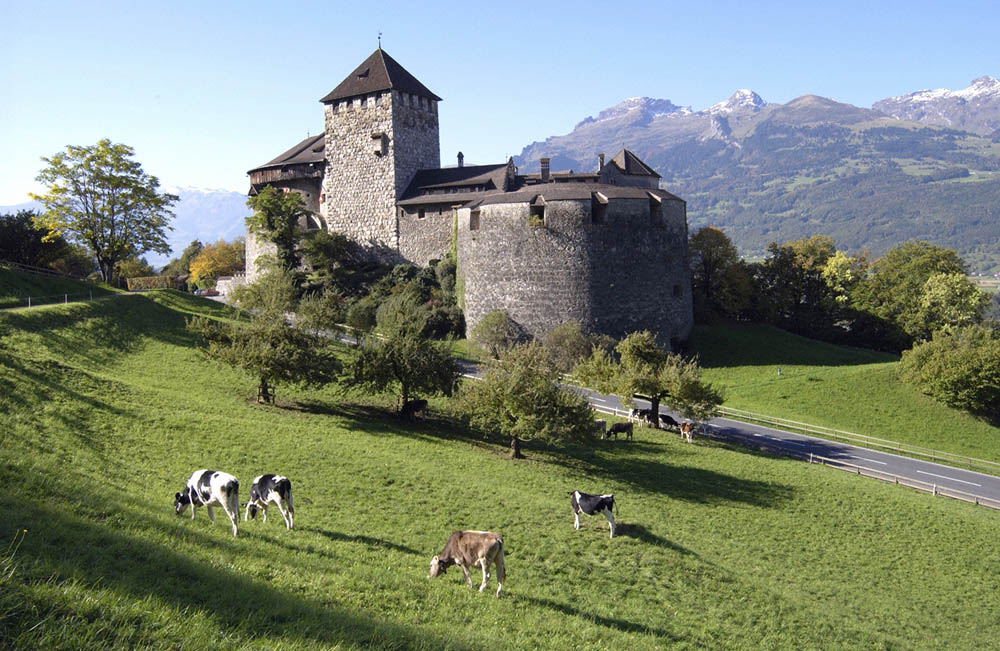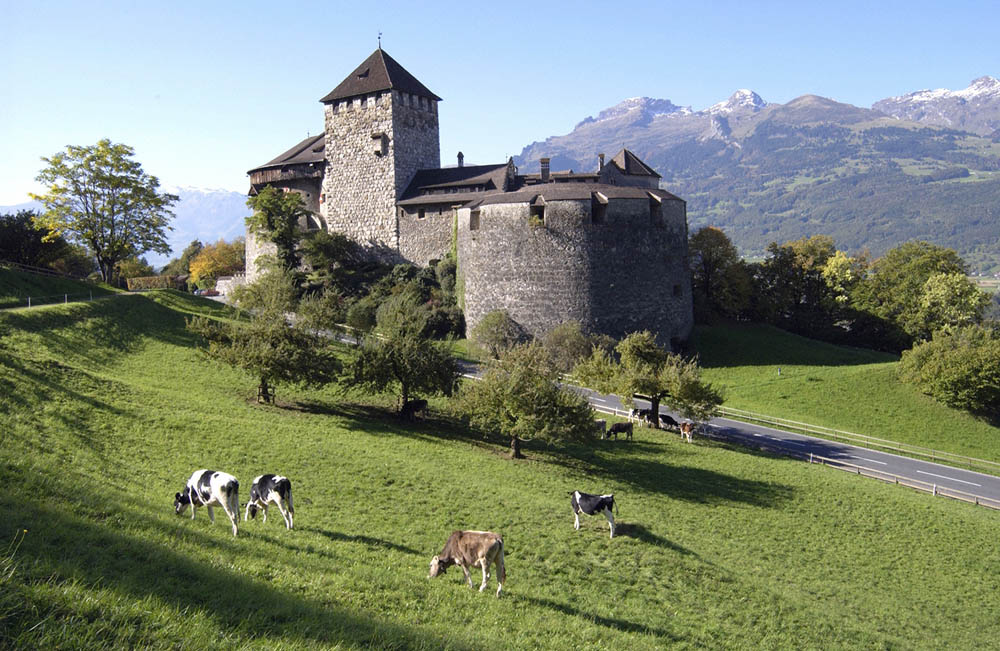The quiet charms of tiny Liechtenstein
Only 37,000 people live in this beautiful nation

A free daily email with the biggest news stories of the day – and the best features from TheWeek.com
You are now subscribed
Your newsletter sign-up was successful
Each week, we spotlight a dream vacation recommended by some of the industry's top travel writers. This week's pick is Liechtenstein.

Liechtenstein "shouldn't really exist," said Mark Richardson at The Globe and Mail. The tiny mountainous country covers just 62 square miles — about the same as Washington, D.C. — and it's surrounded by Austria to the east and Switzerland "to the everywhere else." Yet the pocket-size principality is a proud and independent nation. Home to 37,000 people, Liechtenstein has its own parliament, and a prince and princess who live in a castle overlooking the capital, Vaduz. It also has a lot of money and near zero unemployment, thanks to a lucrative banking sector. Still, the country isn't costlier to visit than its neighbors. I drove across Liechtenstein twice last month, when the whole nation looked picture-postcard pretty, with tidy forests and manicured pastures surrounded by snowcapped Alpine peaks.
The landlocked nation has no airports or harbors, so most visitors drive in, usually from Zurich, about two hours away, or Munich, about four hours. "There's no sign on the bridge over the Rhine from Switzerland that says 'Welcome to Liechtenstein' — or if there is, I didn't see it." As I soon discovered, "this is an understated country in every way." On the drive to my hotel, I got lost on a twisty mountain road and had to ask some hikers for directions. Thankfully, everyone in the German-speaking country seems to know English, as well as where everything is. Indeed, it became apparent that most of Vaduz had dined at my hotel's Michelin-starred restaurant. "Oh, you ate at the Restaurant Marée?" several locals remarked the next day. "Such a good choice."
The Week
Escape your echo chamber. Get the facts behind the news, plus analysis from multiple perspectives.

Sign up for The Week's Free Newsletters
From our morning news briefing to a weekly Good News Newsletter, get the best of The Week delivered directly to your inbox.
From our morning news briefing to a weekly Good News Newsletter, get the best of The Week delivered directly to your inbox.
It doesn't take long to drive the country's 15-mile length along the Rhine valley, but traversing the nation's 7-mile width takes far longer, because the roads running east "wiggle their way up into the mountains." High above the valley in Triesenberg, I stopped to enjoy a sweeping view before heading south. I pulled over again at the Swiss border, near the site of one of the most exciting incidents to occur in Liechtenstein this century. One night in 2007, 170 soldiers from Switzerland got lost during a training exercise and accidentally invaded the tranquil principality next door. Apparently, nobody in Liechtenstein noticed — "which is just as well, because it has no army of its own."
Read more at The Globe and Mail, or book a room at the Park Hotel Sonnenhof. Doubles start at $380.
A free daily email with the biggest news stories of the day – and the best features from TheWeek.com
-
 Tourangelle-style pork with prunes recipe
Tourangelle-style pork with prunes recipeThe Week Recommends This traditional, rustic dish is a French classic
-
 The Epstein files: glimpses of a deeply disturbing world
The Epstein files: glimpses of a deeply disturbing worldIn the Spotlight Trove of released documents paint a picture of depravity and privilege in which men hold the cards, and women are powerless or peripheral
-
 Jeff Bezos: cutting the legs off The Washington Post
Jeff Bezos: cutting the legs off The Washington PostIn the Spotlight A stalwart of American journalism is a shadow of itself after swingeing cuts by its billionaire owner
-
 Epstein files topple law CEO, roil UK government
Epstein files topple law CEO, roil UK governmentSpeed Read Peter Mandelson, Britain’s former ambassador to the US, is caught up in the scandal
-
 Iran and US prepare to meet after skirmishes
Iran and US prepare to meet after skirmishesSpeed Read The incident comes amid heightened tensions in the Middle East
-
 Israel retrieves final hostage’s body from Gaza
Israel retrieves final hostage’s body from GazaSpeed Read The 24-year-old police officer was killed during the initial Hamas attack
-
 China’s Xi targets top general in growing purge
China’s Xi targets top general in growing purgeSpeed Read Zhang Youxia is being investigated over ‘grave violations’ of the law
-
 Panama and Canada are negotiating over a crucial copper mine
Panama and Canada are negotiating over a crucial copper mineIn the Spotlight Panama is set to make a final decision on the mine this summer
-
 Why Greenland’s natural resources are nearly impossible to mine
Why Greenland’s natural resources are nearly impossible to mineThe Explainer The country’s natural landscape makes the task extremely difficult
-
 Iran cuts internet as protests escalate
Iran cuts internet as protests escalateSpeed Reada Government buildings across the country have been set on fire
-
 US nabs ‘shadow’ tanker claimed by Russia
US nabs ‘shadow’ tanker claimed by RussiaSpeed Read The ship was one of two vessels seized by the US military